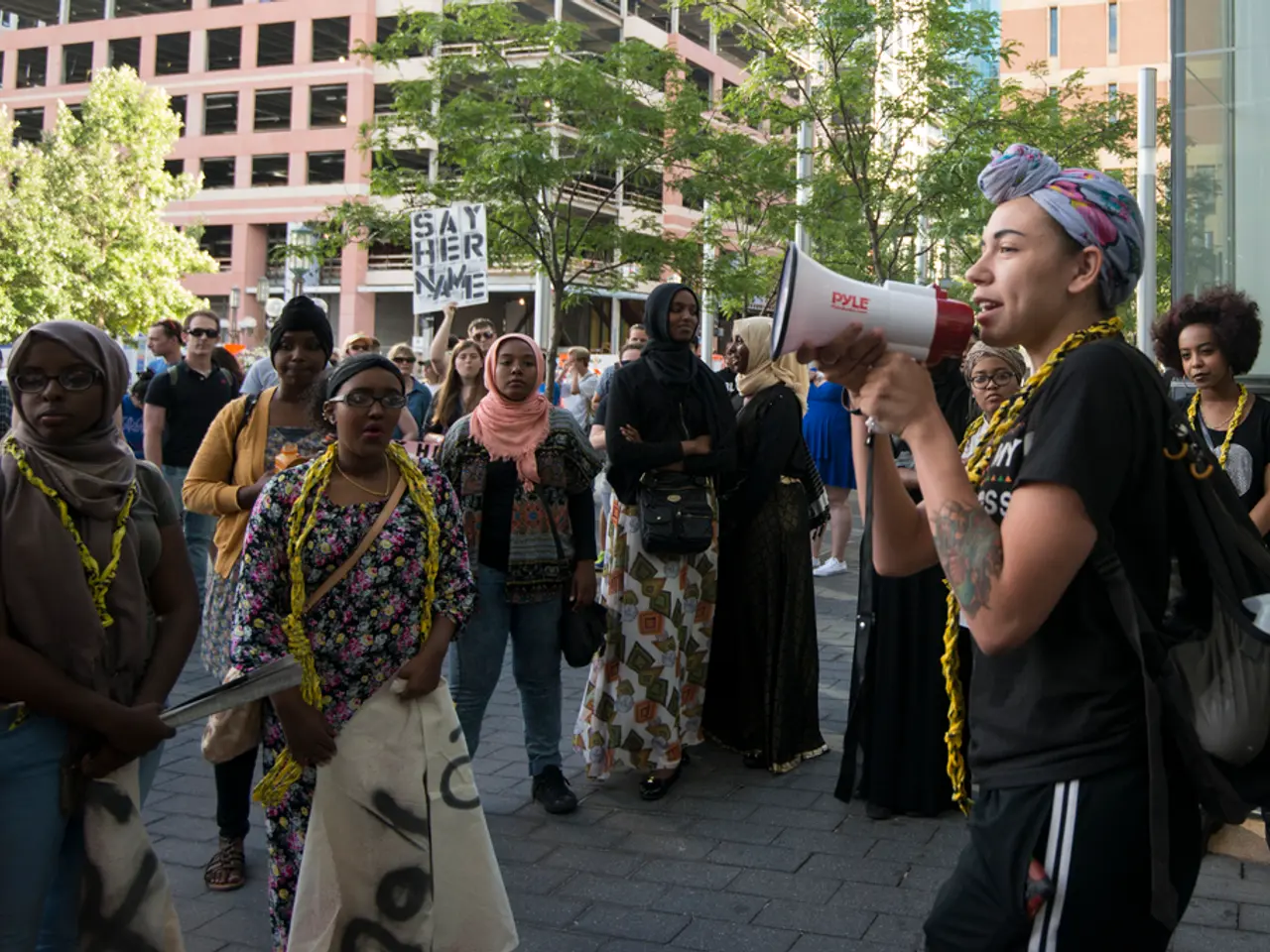Four years under Taliban rule: The relentless women of Afghanistan persist
In the fourth year of Taliban rule, Afghanistan has seen a significant shift towards increased restrictions for women, according to Afghanistan expert Thomas Ruttig. Despite these challenges, Afghan women continue to fight for their freedoms and education, primarily through underground and online schools, daily acts of resistance, and global advocacy efforts.
One of the key ways Afghan women persist is by running secret schools for girls and women. These covert educational initiatives aim to bypass bans on female schooling beyond grade six and university attendance, which were imposed abruptly by the Taliban starting in late 2022. Many teachers, like one with over a hundred students, are teaching girls at home or continuing their education online due to Taliban restrictions.
Women are also engaging in daily acts of resistance, such as small public defiances of oppressive rules, maintaining networks of women activists inside Afghanistan and in diaspora, and communicating to challenge the Taliban’s gender apartheid system. Schila, a beauty salon owner in Herat, Afghanistan, is one such example. To avoid attracting unwanted attention from the Taliban, she instructs her customers not to visit her salon in groups and to keep children at home. Her clients slip into the store inconspicuously and wear veils or face masks to avoid detection.
Roja Mohammadi, a female entrepreneur, sells handicrafts in the Afghan style, but her female customers have decreased due to the Taliban’s restrictions. Her male and female employees must work separately by gender due to Taliban's morality police inspections.
Afghan women are leading global campaigns and forums to condemn Taliban abuses, including efforts to classify Taliban policies as gender apartheid and crimes against humanity in international law. Initiatives like the People’s Tribunal of Women and Girls of Afghanistan highlight the catastrophic impact of the Taliban's actions on women's rights.
Internationally, Afghan women advocate for their rights and safety, calling on the global community to resist legitimizing the Taliban regime and to provide safe resettlement pathways and support for Afghan women and girls. Some women activists remain in difficult conditions abroad but continue to highlight the dire situation for women in Afghanistan, where the Taliban’s continuing bans on female education beyond middle school, exclusion from most jobs and public life, enforced dress codes, and moral policing have pushed many women into isolation and vulnerability.
Despite these efforts, the situation remains dire. However, surveys of Afghan women peacebuilders indicate a strong belief in their ability to create positive change even under oppression. Afghanistan expert Thomas Ruttig emphasizes the importance of supporting the population in the face of the humanitarian crisis through development cooperation, rather than turning away from the country.
In August, the Taliban issued the so-called morality law, which prescribes full veiling in public for women. The Taliban government remains isolated, with regional neighboring countries maintaining a pragmatic approach but overall isolating the country. Russia became the first and only country in the world to officially recognize the Taliban government in July.
The German government is considering further deportations to Afghanistan and allowed Taliban-appointed consular staff to enter Germany for the first time since the Taliban took power. This move has raised concerns among human rights activists and Afghan women who fear the potential increase in violence and restrictions against women's rights.
In summary, Afghan women persist through covert education, community organizing, international advocacy, and personal resilience in the face of Taliban repression and economic hardship worsened by sanctions and forced deportations. Their resilience and determination serve as a testament to their unwavering commitment to their rights and freedoms.
[1] Human Rights Watch (2023). "Afghan Women Resist Taliban Repression: Covert Education, Community Organizing, and Global Advocacy." [Online]. Available: https://www.hrw.org/news/2023/03/24/afghan-women-resist-taliban-repression
[2] Amnesty International (2023). "Afghan Women Under Taliban Rule: A Human Rights Crisis." [Online]. Available: https://www.amnesty.org/en/latest/news/2023/03/afghan-women-under-taliban-rule-a-human-rights-crisis/
[3] United Nations (2023). "The Situation of Women and Girls in Afghanistan." [Online]. Available: https://www.un.org/en/gender-equality/women-peace-security/news/2023/03/the-situation-of-women-and-girls-in-afghanistan
[4] The New York Times (2023). "Afghan Women's Resistance to Taliban Rule." [Online]. Available: https://www.nytimes.com/2023/03/24/world/asia/afghanistan-taliban-women-resistance.html
[5] Al Jazeera (2023). "Afghan Women's Struggle for Rights under Taliban Rule." [Online]. Available: https://www.aljazeera.com/news/2023/03/24/afghan-womens-struggle-for-rights-under-taliban-rule
- Science, health-and-wellness, and mental-health communities are closely monitoring the impact of Taliban rule on Afghan women's health and wellbeing.
- The world of lifestyle journalism is documenting the daily acts of resistance by Afghan women, showcasing their courage and resilience.
- In the realm of travel and migration, reports have been released detailing the difficulties faced by Afghan women seeking safe resettlement due to Taliban restrictions.
- Coverage of war-and-conflicts, politics, and cultural-travel sections are featuring stories of female activists advocating for peace and addressing the Taliban's policies on women's rights.
- General-news outlets are also investigating the rising crime-and-justice concerns related to women's safety in Afghanistan, as well as the escalating human rights violations committed by the Taliban.
- As global attention focuses on the situation facing Afghan women, numerous organizations, including Human Rights Watch, Amnesty International, the United Nations, The New York Times, and Al Jazeera, are conducting extensive research and reporting on the social, economic, and political challenges faced by Afghan women under Taliban rule.




